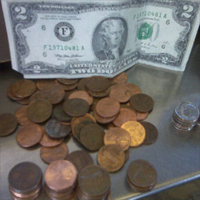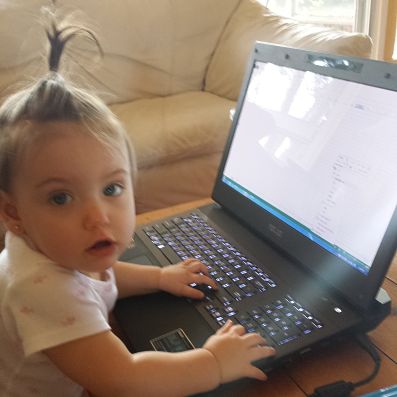I spent the five happiest years of my life in a morgue. As a forensic scientist in the Cleveland coroner’s office I analyzed gunshot residue on hands and clothing, hairs, fibers, paint, glass, DNA, blood and many other forms of trace evidence, as well as crime scenes. Now I'm a certified latent print examiner and CSI for a police department in Florida. I also write a series of forensic suspense novels, turning the day job into fiction. My books have been translated into six languages.
No, just a regular brush, and UV light, as far as anyone here knows, wouldn’t make any difference. The gloves will, however, leave more traces the longer they are worn.
Sometimes. Perhaps 10% of the time.
I don't watch the show, so I couldn't comment. But fiction is meant to be entertaining, and it's usually more satisfying to focus on one story at a time.
Yes, absolutely. I can’t think of anything I’d enjoy as much.
Toll Collector
 What happens when a car blows past a tollbooth without paying?
What happens when a car blows past a tollbooth without paying?
Sr. Software Engineer
 Are those $12,000 "learn to program" bootcamps a rip-off?
Are those $12,000 "learn to program" bootcamps a rip-off?
Claims Adjuster
Yes, certification in any discipline is definitely a good thing to put on a resume.
Do you mean a Tyvek suit? To prevent cross contamination? We have whole body suits but have not yet had a scene that required them. We will wear disposable booties and of course gloves for any homicide scene. Sometimes the point, as with fentanyl and COVID risks, is to protect ourselves, and sometime the point is protect the scene and keep from dragging trace evidence from outside the scene to inside the scene.
-OR-
 Login with Facebook
Login with Facebook (max 20 characters - letters, numbers, and underscores only. Note that your username is private, and you have the option to choose an alias when asking questions or hosting a Q&A.)
(A valid e-mail address is required. Your e-mail will not be shared with anyone.)
(min 5 characters)
By checking this box, you acknowledge that you have read and agree to Jobstr.com’s Terms and Privacy Policy.
-OR-
 Register with Facebook
Register with Facebook(Don't worry: you'll be able to choose an alias when asking questions or hosting a Q&A.)